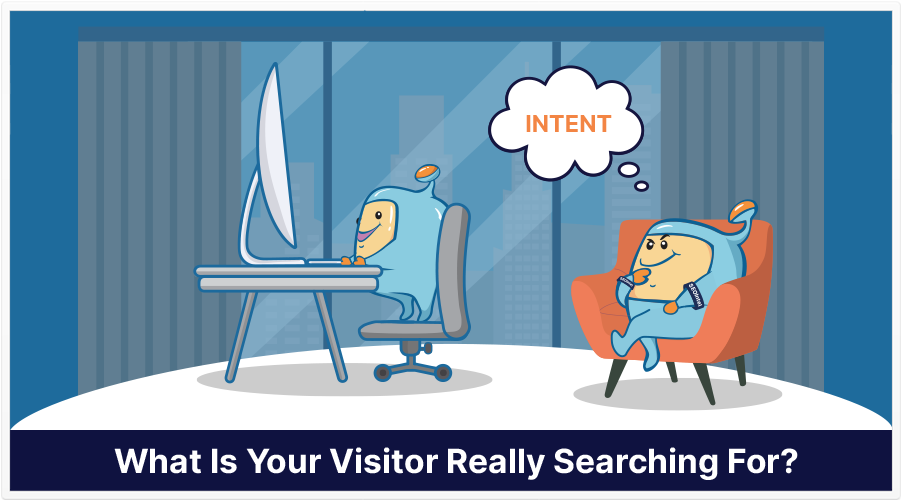
I’m Sure You Know About…
…keyword research.
It’s probably one of the first things you learn about digital marketing. The concept of keyword research is so broadly established that it’s not exclusive to search engine optimization (SEO), though it is one of the first things you learn in SEO.
You Probably Have an Intuitive Sense of This, But Never Consciously Thought About It…Until Now
Underlying every search query (keyword, in our case), is something that drives the person to type that search query. That reason why, we can say, is search intent.
Keywords, at face value, are just keywords, but when we look and think deeper, we ask ourselves, “What does a person who enters this query want?” That’s when we approach search intent.
Keyword Cannibalism, or Search Intent Cannibalism?
I’d like to take a bit of a sidestep to try to show you how important search intent is.
Recently, while reading an article by Lazarina Stoy, titled, Supercharge Your Keyword Research Process By Incorporating Search Intent Classification, I read the following quote, which is attributed to Clearscope co-founder, Bernard Huang:
‘There is no such thing as keyword cannibalization, only search intent cannibalization’
If you’re not sure what keyword cannibalism is, it’s basically the idea that if you have 2 or more web pages that, according to Google, both target the same keyword (or search query), then both pages can compete against each other for rankings.
In other words, the idea is that, with 2 pages that target the same keyword, Google won’t know which page to show, and hence, your site might rank lower than if it had one page that distinctly targeted that keyword.
(Granted, there are exceptions to this. A brand’s site can have multiple pages that rank for the same query.)
Why Is Search Intent Cannibalism So Important?
Well, now that I’ve (hopefully) set some context, let’s look at something that Google Search Advocate John Mueller said during the latest Q&A session, English Google SEO office-hours from September 17, 2021:
“I could imagine that our systems, over time, try to figure out what the intent is of these queries…”
So, Google tries to figure out search intent.
John was answering a question pertaining to why a certain page ranked differently for singular and plural versions of the same base keyword.
He went on to say, “…and also that this intent can change over time, where if we see that maybe we got it wrong with singular and plural there, it could happen that we switch it back to something where we say, ‘Oh actually this is more informational…”
More on search intent. But notice he said the word informational, which, I think, is one of the 4 types of search intent. (You could say there are more, but I’ll just keep it simple.)
John went on, mentioning another type of search intent (transactional), “…or maybe it’s also seasonal, where we would say, ‘Well, at this time it’s an informational query but maybe, if in December you’re searching for Christmas trees, and you want to buy one, you have more of a transactional intent…”
The 4 Types of Search Intent
In the Lazarina Stoy article I mentioned above, Stoy says there are 4 types of search intent: informational, navigational, commercial, and transactional.
From listening to what John said, it seems clear to me that each piece of content should, ideally, be exclusively created with one (and ideally, only one) of the 4 types of search intent. And, it should clearly, and unambiguously, be centered around that one type of search intent.
I say that each piece of content should clearly be based on one type of intent because if Google can’t clearly identify the intent, then Google might not know what search terms (which are powered by intent) to show your page for.
(If you listen to the video, and keep what I said in mind, you may agree that this is very much in line with what Google’s attempting to understand, which is searcher intent.)
John also said, “…having it so that you have clear separate pages for the different intents, I think makes it a lot easier for our systems and makes it a lot easier for users as well. If they want information then they land on an informational page.”
Search intent is real–as real as keywords. It may not be as visible and measurable as keywords, but behind every search query is a search intent.
That’s what you have to write about. Write to people’s deep desires.